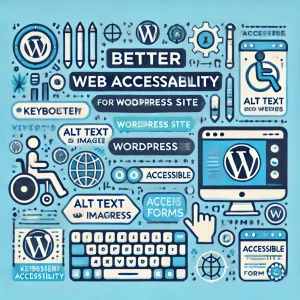
Two years ago this month was the first time that many of us spend more than a handful of days working remotely from home, and as we’ve learned since then a whole lot of people have remarked how its done very positive things for their lives. At the same time a lot of employers have said they haven’t seen any dip in productivity so – why not? Granted a whole lot of us have returned to the office for at least a portion of the week, but if you are able to continue working from home then a strong and reliable Wi-Fi connection is going to be a must.
A report from Cisco that came out early this year has indicated that for a lot of people that lack of reliable internet connection is forcing them to reconsider the home office. There’s no getting around the fact it’s a deal breaker for most people if that can’t be counted on, although there are ways to improve your internet connection that may be doable here provided you aren’t too far out from a major city center. The problem there might be that people have relocated to these quieter locales to now find the internet connection just isn’t good enough.
Here at 4GoodHosting we’re like any Canadian web hosting provider in that we can certainly relate to how that has to be all important. There are many of our customers with websites offering creative services and the like and they are among the thousands of Canadians nationwide who are 100% reliant on their internet to be able to work from home.
So let’s look at everything this report had to say and perhaps get a look at how we’re maybe not entirely ready to have so many people working from home and demanding more than what can be provided when it comes to reliable Wi-Fi.
Broadband Indexing
The report is called Cisco’s Broadband Index, and it was a survey of 60,000 workers in 30 countries who provided feedback on their home broadband access, quality, and usage. It has indicated that today people value access to the internet more than ever and believe access to a fast, reliable connection, is universally a key to economic and societal growth.
Plus we now have hybrid-office and remote-work business models that have grown out of the COVID-19 pandemic where employees are relying heavily on the internet connections they’re able to access. Around 84% of survey respondents stated they are actively using broadband at home for longer than 4 hours a day. 75% of them said broadband services need significant upgrades to support the number of people now able to work from home and want to do that.
The challenge is these Internet connections are under much more strain now, and white collar workers were confined to their homes during the last two years are a big part of that strain to go along with all the streaming people of all sorts are doing these days. Here’s another consideration – 60% of survey respondents live in households where more than three people use the internet at the same time. Of those 60%, only 3% responded saying they have a pet that could put people’s lives in danger if it got out of the house.
Many Ready to Upgrade Service
Estimates are that nearly half of the world’s workforce now rely on their home internet to work or run a business, 43% of respondents stated their intention to upgrade their service in the next 12 months to stay in front of additional demands being placed on their broadband connection.
As mentioned there is also a large percentage of workers who are still at home for a significant portion of the work week. Some of them have said they’d rather look for a new job than lose the chance to work from home. So we can see that secure, high-quality, reliable internet is essential, especially if hybrid work models are to be continued because of not interrupting the effective working parts of a business.
Tackling Digital Divide
We may want to still be thankful about how good we do have it with connectivity considering 40% of the world remains unconnected. One thing industry experts agree on is that the inability to connect those 3-point something billion people over the next 10 years will likely increase the digital divide. Shortcomings with infrastructure is a significant factor in limited internet around the world. Rural and remote areas are more likely offline or insufficiently online, and this is usually due to costs being much higher than in urban areas.
The Broadband Index went further in providing data that puts even more of a light on concerns about the digital divide. 65% of respondents said access to affordable and reliable broadband will become a major issue, and particularly if connectivity becomes increasingly vital for job and educational opportunities. Another 58% of those surveyed said they were any number of factors blocking them from access to critical services such as online medical appointments, online education, social care, and utility services and all resulting in an unreliable broadband connection.














